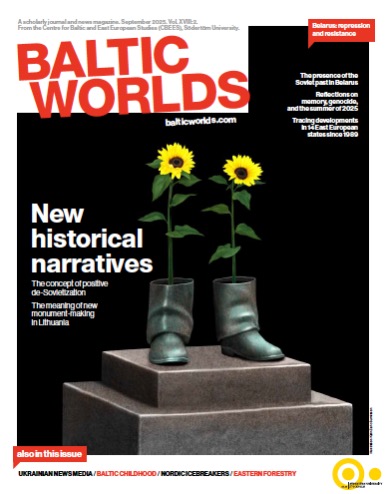The World Seen Through Binoculars
Anna Kharkina visits an exhibition about childhood and sees artifacts from the Romanian countryside. The exhibition opens doors to an individual and a shared past for those with common memories of childhood in a country that no longer exists.

 Issue 2025, 2:
Issue 2025, 2: